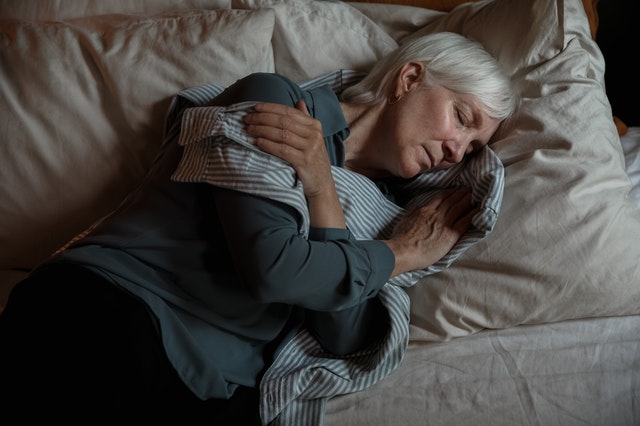The thought of menopause can be scary because it’s often associated with unpleasant symptoms. But is menopause really as bad as it’s sometimes portrayed in sitcoms and other television shows? Do some women sail through menopause without even realizing it or is the experience always terrible? To help ease your mind and prepare you for this important phase in life, here are your top three menopause questions, answered.
1. What Are the Symptoms of Menopause?

As your body approaches menopause, your estrogen levels begin to act a little haywire. They may be elevated one day, then fall the next. These extreme hormone changes can lead to a lot of symptoms, including:
- Mood swings
- Hot flashes
- Sleep problems
- Irregular menstrual periods
- Vaginal dryness
- Increased abdominal fat
Don’t those symptoms sound fun? As your body approaches and goes through menopause, you’re likely to experience more than one of the above symptoms. If you’re lucky, you’ll get them all! But it isn’t the end of the world. The symptoms you’re experiencing won’t last forever, and there may be things you can do to minimize them.
Some women experience very mild menopause symptoms. It’s not clear why some women have mild symptoms while others have extreme symptoms when going through menopause. If you think you might be going through menopause but you aren’t sure, you can do a blood test. Your doctor will test your estrogen and follicle-stimulating hormone levels to confirm if you’re going through menopause.
2. Are There Complications Associated With Menopause?

Most of us ladies will go through menopause without any major issues. But some of us may develop complications from menopause. The below complications are associated with menopause (though they are also associated with the normal process of aging).
- Weight gain
- Heart disease
- Urinary problems
- Osteoporosis
The physical changes that happen to your body during menopause may leave you more susceptible to the above complications after menopause. During the postmenopausal stage, estrogen levels are quite low. These low levels can negatively impact bone and heart health. It can also lead to weight gain (particularly around your middle section) and make you more prone to urine leakage (especially when laughing or coughing).
You can lower your risk of these complications by quitting smoking, eating a heart-healthy diet, exercising regularly, and looking into treatment options for urinary incontinence. Don’t worry – you may not develop any of these issues after going through menopause. It is just a good idea to look out for them and be prepared to deal with them if they occur.
3. How Can I Treat My Menopause Symptoms?

There are treatment options available for women going through menopause. Before you start taking any of the available menopause medications, it’s important to understand that they come with risks and potential side effects.
Hormone therapy is one of the most common treatments for menopause and it can minimize symptoms such as hot flashes, mood swings and vaginal dryness. However, hormone therapy is also associated with an increased risk of stroke, uterine cancer and breast cancer. Talk to your doctor to figure out whether the risks of hormone treatments are worth the benefits they can offer.
You may be able to naturally minimize your menopause symptoms by doing the following:
- Eating a healthy diet
- Maintaining a healthy weight
- Exercising regularly
- Eating more foods high in phytoestrogens (such as flaxseeds, soybeans, beans and tempeh)
- Reducing consumption of processed foods and refined sugars
- Staying properly hydrated
- Taking natural hormone-support supplements (such as red clover extract, black cohosh, dong quai and evening primrose oil)
- Eating sufficient protein for your body’s needs
If you don’t want to take hormone replacement therapy, try the above natural remedies to minimize your menopause symptoms. Don’t forget that menopause doesn’t last forever. Take it one day at a time until you get through this challenging phase of life. There are millions of women fighting alongside you!


I started at around age 47. I’m 70 now. How much longer before I don’t get the hot flashes anymore? This is getting a bit ridiculous.